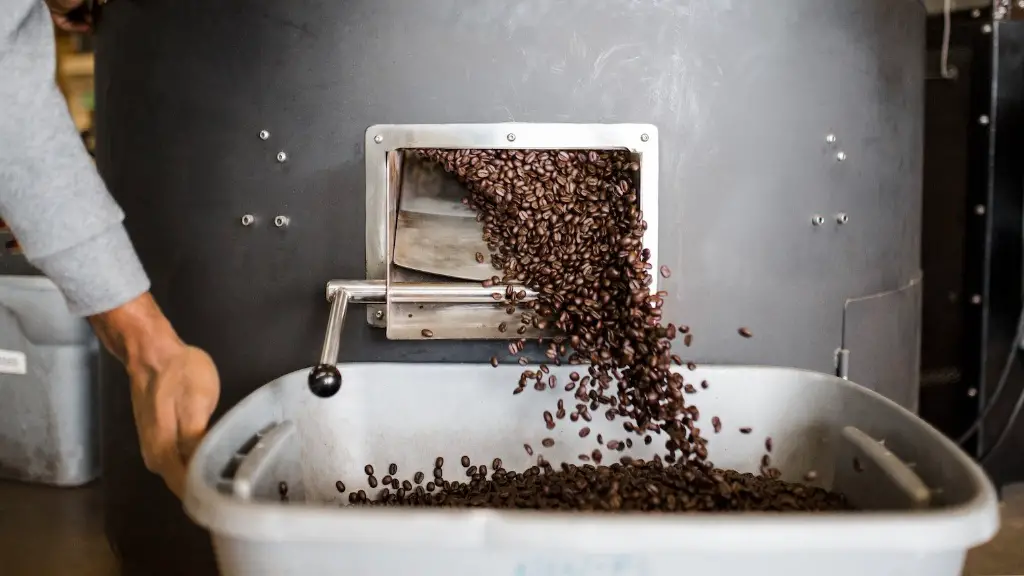Benefits of Drinking Coffee While Breastfeeding
Coffee is a popular drink amongst many adults, but there are a lot of misconceptions about the safety of consuming the drink for breastfeeding mothers. It’s understandable for breastfeeding mothers to be careful about the kinds of food and drinks they consume and their corresponding health effects, especially when studies tend to be inconclusive. However, due to the many potential health benefits associated with drinking coffee while breastfeeding, maintaining a balanced and responsible caffeine intake can actually be beneficial to both mother and baby in many ways.
Coffee and Breast Milk Production
The caffeine found in coffee has traditionally been associated with decreased breast milk production, as it’s believed that caffeine disrupts the flow of certain hormones in the body. Although it’s true that too much caffeine can have a negative impact on milk production, limited caffeine intake is unlikely to significantly interfere. An individual cup of coffee only contains around 80-135mg of caffeine, and can often be broken down while the body is at rest, meaning any residual caffeine is unlikely to interfere with breastfeeding.
Energy Boost
Caffeine is known to increase alertness and energy levels, and can often give you an extra boost when you need it most. When consumed in moderation, caffeine can be highly beneficial for mother’s struggling with fatigue as a result of lack of sleep. Caffeine stimulates the central nervous system, providing a short-term energy increase and improved focus, both of which can be useful when trying to be more efficient with other tasks throughout the day such as housework, or juggling other responsibilities outside the home.
Maintaining Nutrition
Nutrition is key during any breastfeeding period, for both mother and baby, and coffee can often cover certain nutritional gaps within the diet. Coffee is a source of minerals such as potassium, magnesium, niacin, and pantothenic acid. Each of these minerals have different roles within the body, ranging from cardiovascular health, balance of electrolytes, antioxidant protection and neurological development, making it a great addition to any diet.
Coffee and Postnatal Depression
Studies have demonstrated that coffee can help reduce the risk of postnatal depression. Caffeine is a known stimulant, so can assist with uplifting mood and reducing stress, enabling the mother to maintain a healthier mental state.
Responsible Consumption
It’s widely accepted that caffeine consumption of up to 3 cups per day is safe for breastfeeding mothers, provided cautious consumption is taken into account. With the potential benefits associated with coffee consumption, it’s important to remember to consume caffeine in moderation, and consider the many risks that come along with too much caffeine. Keep in mind that coffee has a diuretic effect, so make sure to drink plenty of fluids to stay hydrated, and always check the caffeine content of drinks due to the wide variations from brand to brand. Finally, if it makes you feel more comfortable, it’s wise to seek advice from a registered doctor or health professional.
How can coffee be enjoyed?
It’s no secret that coffee consumption often comes along with great flavors and aromas. This can be enjoyed in many ways, however some techniques such as a French press or using a stovetop percolator will result in a stronger cup of coffee, which can contain more caffeine; something to consider for breastfeeding mothers. It’s also important to maintain a balanced diet, and opt for healthier alternatives such as certain syrup-free or sugar-free drinks. Finally, for alternative coffee options, explore decaf or caffeine alternatives such as Rooibos tea, a caffeine-free tisane known to have a naturally sweet and smooth taste.
Can coffee be bad.
One of the major risks associated with excess caffeine intake is jitteriness and insomnia, both of which can affect the mother’s ability to care for her baby; so it’s important to keep in mind that too much caffeine can actually be harmful.
Coffee contains antioxidants, which can offer protection from free radicals and combat oxidative stress, however it’s important to be aware that the compounds found in coffee can occasionally interfere with the body’s natural antioxidant defense system. Acids, like Chlorogenic Acid, are known to inhibit certain digestive enzymes and can often be difficult for some people to break down. This can result in symptoms such as nausea, indigestion and acid reflux.
Coffee Alternatives
For mothers who don’t want to consume the caffeine from coffee, there are a plethora of options available. Decaffeinated coffee is becoming increasingly popular, and it’s important to note that the decaffeination process doesn’t involve any harsh or harmful chemicals and can often still retain some of the flavor and aroma associated with the original coffee beans. Plus, as a form of processed coffee, decaf typically contains fewer caffeine molecules.
Alternative drinks such as herbal teas and other tisanes can also be beneficial, however check with a health professional first as some teas can contain herb-derived compounds and plant toxins that can have negative health consequences.
Coffee and Breastfeeding Schedule
It’s best to drink coffee during breastfeeding between meals or after breastfeeding, rather than before, to prevent the baby from being exposed to caffeine through the breast milk. If avoiding caffeine altogether is preferred, opt for a decaffeinated alternative.
Potential Side Effects
Although caffeine has been proven to be generally safe in modest amounts, there are still potential side effects to consider. Caffeine can cause headaches, restlessness, and nausea; which can be misconstrued with other similar symptoms associated with lactation. Also, caffeine metabolism can vary from person to person and can affect how quickly your body can process it, so if sensitive to caffeine, try to keep consumption to a minimum.
Conclusion
So in summary, it’s acceptable for mothers to drink coffee whilst breastfeeding, however it’s important to remember to maintain a balanced caffeine intake and consider the potential side effects associated with excessive caffeine consumption. Coffee and caffeine can be beneficial in some respects, however it’s important to ensure other aspects of nutrition are sufficiently met for the health of both mother and child. Ultimately, of course, it’s important to have an open view and always strive to find the best options for you as an individual.



